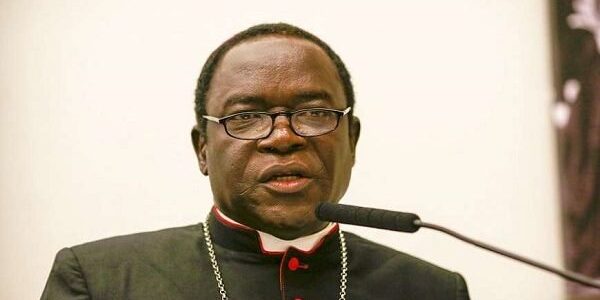
Catholic Bishop of Sokoto Diocese Rev Matthew Kukah has said Nigeria has not recovered from wounds of the civil war, 51 years after the unfortunate event.
He also lamented the leaders have not learnt instructive lessons from the 30-month war.

The activist-cleric, who spoke at the second edition of the ‘Never Again Conference” said the country has failed to adopt resolutions meant to heal the wounds of the war.
The theme of the virtual conference was:’51 years after the Nigerian-Biafran civil war.’

It was chaired by Afenifere chieftain Chief Ayo Adebanjo.
The ‘Never Again Conference’ is the brainchild of Nzuko Umunna, a pan-Igbo socio-cultural organisation, which organised the first edition in Lagos last year.
Kukah said some of the neglected resolutions were re-echoed at the Human Rights Violations Investigation Commission set up by former President Olusegun Obasanjo and chaired by the late Justice Chikudifu Oputa.
He also said while the military laid the foundation for Nigerians to begin a process of rebuilding the nation, “things somehow went wrong” along the line.
Kukah stressed: “I have met a lot of people who fought the war who are full of regrets. There is a lot of resentment, anxiety and frustration that we have not learnt any lessons.
“Fifty-one years after the war, we are still hearing the kind of agitations that ordinarily, with commitment, dedication, focus and the right leadership, we should have put a lot of the anxieties behind us. Unfortunately, they are still with us.”
The bishop described the Oputa panel, which he was part of as “the best school I would ever hope to attend”.
He added: “Oputa Panel managed to generate quite a lot of data and information that academicians and policymakers would have used to ensure we erect the signpost saying, ‘Never Again’, because it gave us an opportunity, a mirror to look at ourselves after hearing from all sides but we didn’t have the discipline to follow through.
“We have not been able to forgive ourselves as a people. The wounds of the civil war have not been able to heal. Coups and counter-coups that followed were more or less miniature civil wars by themselves because they threw up the same contradictions, anxieties and feeling of divisiveness across the country.”
Credit: The Nation
